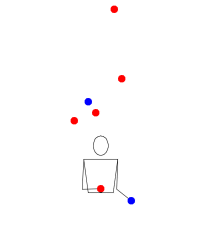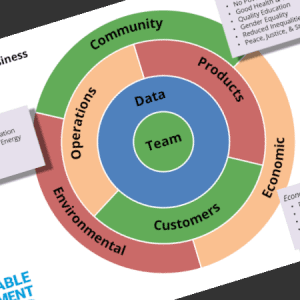It really doesn’t matter which functional area leads your Digital Transformation – as long as they realize that the role needs to understand this critical list of skills and experiences.
The question asked in many corporate leadership suites these days – with many factions (primarily IT and Marketing) assuming that they have the clear claim to the title. In fact, I can easily make a case for Finance, Operations, or Customer Service … even Corporate Communications (if such a role exists). It really doesn’t matter which functional area this leader calls home – as long as they realize that the role needs to understand …
- Product Design & Business Planning – This is a business, after all, and you’ll be expected to clearly describe the benefits / ROI. How will you quantify an ROI if your digital tactics are a big departure for the legacy business? You’ll need to identify directional metrics and design breakpoints in the process, so you can iterate and hone your pitch into something that makes sense.

- Process Design & Customer Service – Information without context is just noise; you’ll need to understand and empathize with your customers and their world, so you can deliver information that matters. And, you’ll probably want to seamlessly integrate with your legacy Customer Service processes for continuity and consistency
- Interaction Design that is appropriate for the target audience, and features compelling design with clear communication of function and value. This goes beyond the interface design for web sites and apps – it’s the holistic, information-based conversation you want to drive with your customers
- Solution Design & Development, including data quality, process definition, and Dev Ops. Unlike cloud infrastructure, this may be something that you choose to internalize if it is crucial to your digital plans.
- Technology Infrastructure that is scalable and sustainable. You won’t necessarily need to build and maintain it (the cloud takes that concern away), but you definitely helps to know how to design and manage it.
- Project & Program Management – to deliver integrated capabilities in a predictable, manageable manner. How will you balance “agile”, fast-twitch iterations with the eventual need to deliver a family of integrated services that are scalable and sustainable?
- Interpersonal Communications – “Digital” will invariably be new to your organization, and introduces a fundamentally different way to deliver value to the customer. If you are not comfortable with questioning the norm and changing peoples’ closely held beliefs, you will struggle.
So which functional area of the business can do all of this? Obviously, no one is deep on everything listed here. The temptation might be to pick the two or three items that you are most comfortable with – so your Digital Strategy person will “speak your language”, and the language of your organization. Alternatively, you might focus on the stuff you are least comfortable with – after all, if you had those skills you’d be doing it already.
Truth is, they are all equally important – none of them can be glossed over or underestimated. The ideal candidate will have experience and skills in all of those areas; deep experience for some, conversational experience in others, enough to glibly know, for example, when the tech group is overcomplicating the servers and pooh-poohing the cloud, or the marketing group is struggling to build meaningful business case, or the project is flailing from lack of a decent PM – and wasting your money.
The best Digital Strategy folks will have proven skills at leading cross-functional teams, with demonstrated experience in all of those areas. Most of all, they must be able to effectively communicate vision and value to the project teams, the operations groups, the stakeholders – and your customers.
30 June, 2014







Comments (0)